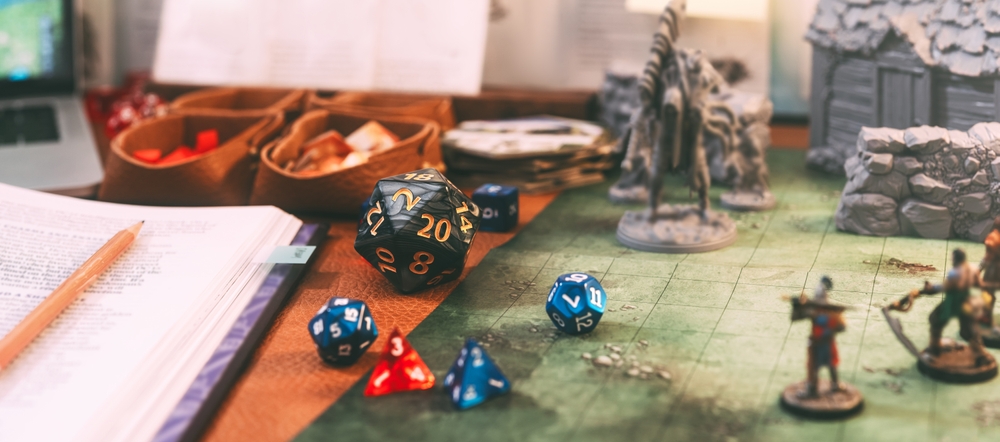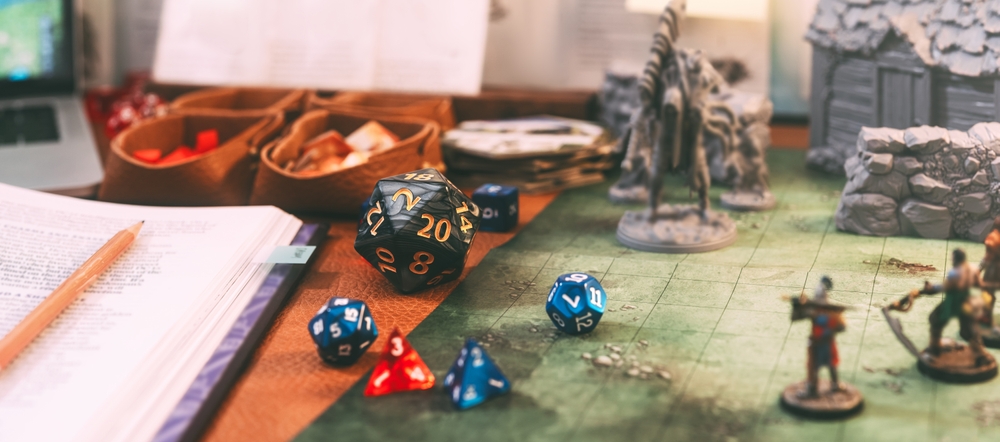In the world of gaming, the terms “tabletop games” and “board games” are often used interchangeably. However, these terms represent distinct categories with unique characteristics and appeal. This comprehensive comparison will delve into the differences between tabletop games and board games, exploring their definitions, gameplay mechanics, and overall experiences. Understanding these differences can enhance your gaming experiences and help you choose the right type of game for your next game night.
What Are Tabletop Games?
Tabletop games encompass a broad category of games played on a flat surface, such as a table. This category includes various types of games, each with its own set of rules and mechanics. Tabletop games can be divided into several subcategories, including board games, card games, role-playing games (RPGs), and miniature games.
Definition and Scope
Tabletop games are defined by their use of physical components that are played on a table or similar surface. Unlike video games or digital games, tabletop games require tangible pieces and often involve face-to-face interaction among players. The scope of tabletop games is vast, covering a wide range of genres and styles.
Types of Tabletop Games
- Board Games: These are games played on a defined board, often featuring a grid or map. Examples include Monopoly and Settlers of Catan.
- Card Games: Games that primarily use a deck of cards as their main component. Examples include Poker and Magic: The Gathering.
- Role-Playing Games (RPGs): Games where players assume the roles of characters in a fictional setting. Examples include Dungeons & Dragons and Pathfinder.
- Miniature Games: Games that involve miniatures representing characters or units, often played on a tabletop battlefield. Examples include Warhammer 40,000 and Warmachine.
What Are Board Games?
Board games are a specific type of tabletop game characterized by the use of a board as the central component of gameplay. While all board games are tabletop games, not all tabletop games are board games. Board games typically involve a board with a grid or map, pieces, cards, dice, and other components that interact with the board.
Definition and Scope
Board games are defined by their reliance on a physical board to facilitate gameplay. The board serves as the primary game area where players move pieces, interact with game elements, and track progress. The scope of board games includes a wide variety of themes and mechanics, from strategy games to party games.
Types of Board Games
- Strategy Games: Games that require careful planning and tactical decision-making. Examples include Chess and Risk.
- Family Games: Games designed for players of all ages, often with simpler rules. Examples include Scrabble and Clue.
- Party Games: Games that focus on social interaction and entertainment. Examples include Pictionary and Cards Against Humanity.
- Eurogames: Games that emphasize strategy and economic management, often with minimal luck involved. Examples include Carcassonne and Ticket to Ride.
Key Differences Between Tabletop Games and Board Games
While board games are a subset of tabletop games, there are several key differences between the two. Understanding these differences can help you make more informed choices about which games to play and how to approach different gaming experiences.
Components and Setup
Tabletop Games: Tabletop games can involve a wide variety of components, depending on the specific game. For example, RPGs may require rulebooks, character sheets, dice, and miniatures, while card games need decks of cards. The setup for tabletop games varies greatly based on the type of game being played.
Board Games: Board games are defined by their use of a board, which is often the central component of gameplay. The board typically includes spaces or areas where players move pieces or interact with game elements. Board games also include other components such as dice, cards, tokens, and player pieces. The setup for board games usually involves laying out the board and arranging the various components according to the game’s rules.
Gameplay Mechanics
Tabletop Games: The gameplay mechanics of tabletop games can vary widely depending on the type of game. For instance, RPGs often involve narrative-driven gameplay and character progression, while miniature games focus on tactical battles and strategic planning. Card games rely on deck-building and hand management, and each type of game has its own unique set of mechanics and rules.
Board Games: Board games typically involve moving pieces on a board, often according to dice rolls or other random elements. Gameplay mechanics in board games can include resource management, area control, and competitive or cooperative strategies. Board games often have a structured setup and predefined objectives, with players working to achieve specific goals within the context of the game.
Social Interaction and Player Experience
Tabletop Games: Tabletop games can vary in terms of social interaction. RPGs and miniature games often involve a high degree of social interaction, as players collaborate or compete in a shared narrative or battlefield. Card games can also involve social elements, such as bluffing or negotiation. The player experience in tabletop games is shaped by the type of game, the group dynamics, and the level of immersion.
Board Games: Board games generally focus on social interaction through competitive or cooperative gameplay. Players interact with each other directly, making decisions that impact the game’s outcome. The player experience in board games can range from casual and lighthearted to intense and strategic, depending on the game’s complexity and theme.
Complexity and Accessibility
Tabletop Games: The complexity of tabletop games varies greatly. RPGs and miniature games can be complex, requiring extensive rulebooks and detailed miniatures, while card games may have simpler rules and quicker setup times. The accessibility of tabletop games depends on the specific game and the players’ familiarity with its mechanics.
Board Games: Board games also vary in complexity, from simple party games to intricate strategy games. Many board games are designed to be accessible to a wide audience, with clear rules and straightforward gameplay. However, some board games can be quite complex, requiring more time to learn and play.
Thematic Elements
Tabletop Games: Tabletop games often feature a wide range of thematic elements, including fantasy, science fiction, historical settings, and more. RPGs, in particular, can offer highly immersive experiences with detailed worlds and character development. Thematic elements in tabletop games can enhance the overall experience and engage players in unique ways.
Board Games: Board games also explore a variety of themes, though the emphasis is often on the gameplay mechanics rather than deep narrative elements. Board games can feature themes ranging from classic settings like medieval kingdoms to modern scenarios and abstract concepts. Thematic elements in board games often serve to enhance the gameplay experience and provide context for the game’s mechanics.
Conclusion
In summary, while both tabletop games and board games offer rich and varied gaming experiences, they represent different aspects of the gaming world. Tabletop games encompass a wide range of game types, including board games, card games, RPGs, and miniature games. Board games, as a subset of tabletop games, are characterized by their use of a board and specific gameplay mechanics.
Understanding the differences between tabletop games and board games can help you make more informed choices about which games to play and how to approach different gaming experiences. Whether you’re interested in the strategic depth of board games or the immersive storytelling of tabletop RPGs, there’s a wealth of options available to suit your interests and preferences. So gather your friends, set up your game, and enjoy the diverse world of tabletop gaming!
Need Tabletop Games Near You?
Imperial Outpost Games is your one-stop shop for all things tabletop gaming. With a wide selection of board games, miniatures, and hobby supplies, we cater to all types of gamers. Our family-friendly store features games for children, families, and parties, making it the perfect spot for game night. As a locally owned business, we also offer a large game room for customers to come in and play their favorite games with friends and other members of the community. Contact us today to learn more about what we can do for you!


